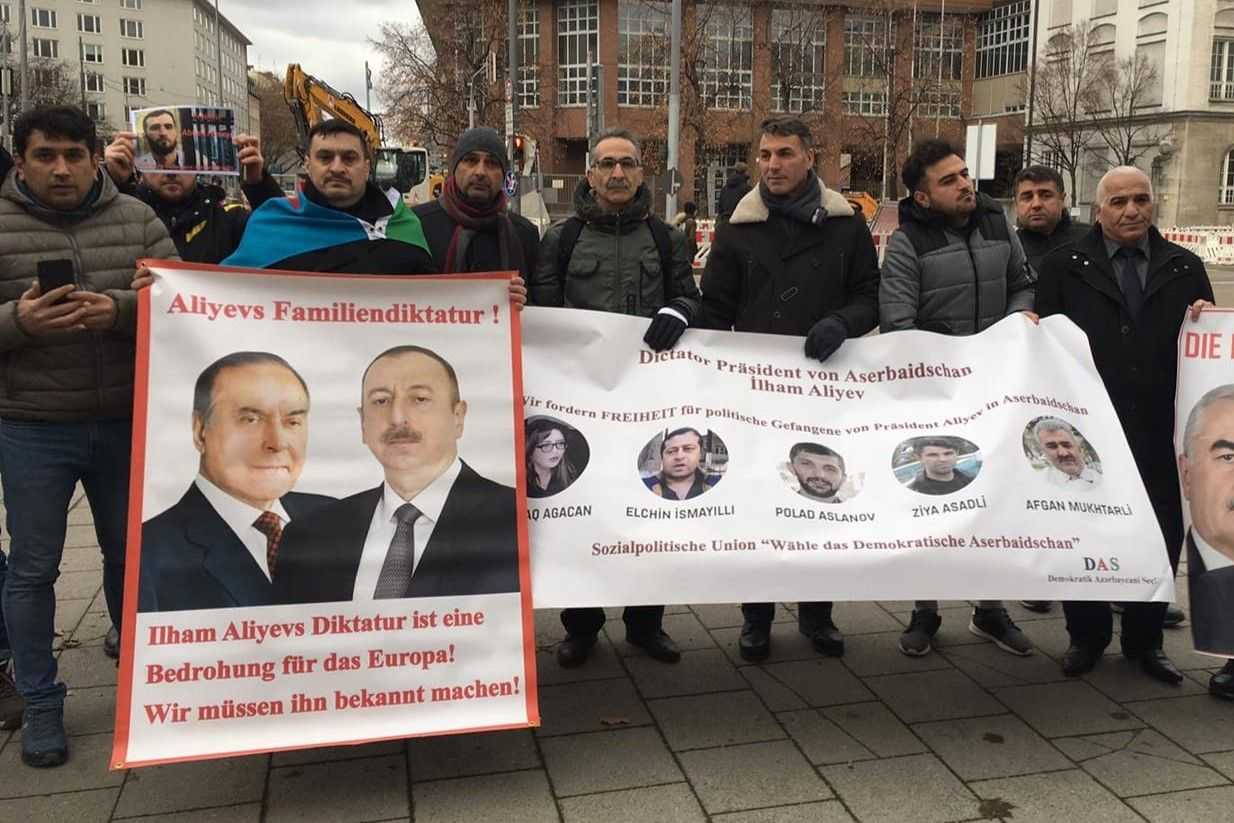
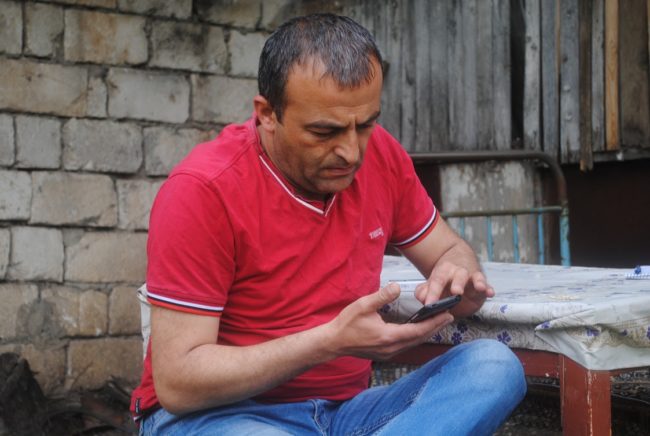
 Landmines and other unexploded ordnance plague the population of Nagorno-Karabakh 23 years after the ceasefire. For Jonik Hovhannisyan, who was a teenager when he went to war, one landmine explosion has shaped his life.
Landmines and other unexploded ordnance plague the population of Nagorno-Karabakh 23 years after the ceasefire. For Jonik Hovhannisyan, who was a teenager when he went to war, one landmine explosion has shaped his life.
The Karabakh war turned Jonik Hovhannisyan’s life upside down and brought him and his family into the most real trouble.
His house in the city of Martuni in Nagorno-Karabakh looks rather like a shack, but, as Jonik says, he and his family have been forced to live there for years, getting used to the seemingly unbearable conditions.
The house doesn’t belong to them, but to Jonik’s uncle. Jonik hoped that his uncle would leave him the house with its adjacent land as an inheritance, but apparently, that’s not going to happen.
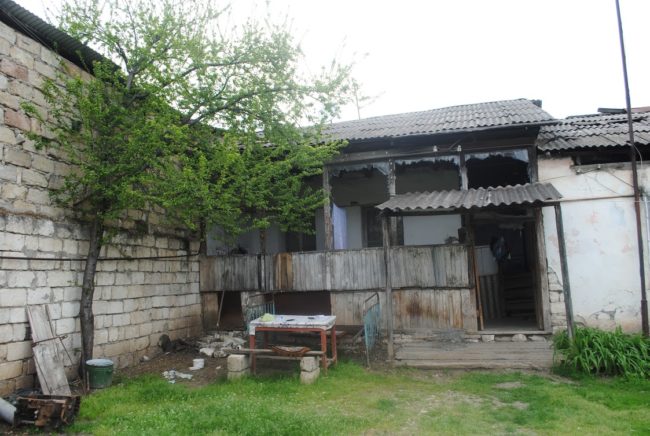
Jonik was still a teenager when the Karabakh war began in early 1988. Despite the protests of his parents and his young age, he volunteered for frontline duty. He says that the older soldiers protected him by not letting him participate in active hostilities, while he helped as much as he could.
During fierce fighting over the city of Aghdam, a car carrying Jonik on his way to a combat post ran into an anti-tank mine on the outskirts of the city.
‘In 1993 we were blown up on a mine. One person died, others were wounded. A couple of days later, Aghdam was liberated’, Jonik tells OC Media.
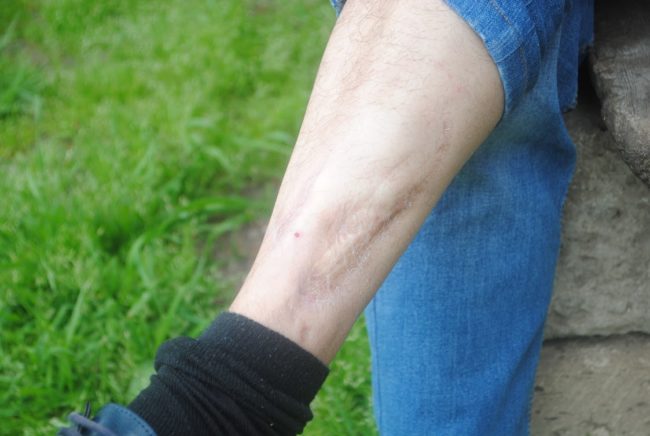
Mines exploded in Karabakh not only during the war years, but also later. Mines still explode even today.
Humanitarian demining organisation the Halo Trust has been working in Karabakh since 2000.
According to Amasia Zargaryan, the organisation’s project coordinator for Nagorno-Karabakh, more than 46 square kilometres of land have been de-mined.
‘We are aware of 5,593,147 square metres [5.59 km²] which must be cleared. So far, we have detected both anti-personnel and anti-tank mines’, Zargaryan said.
Since 1995, 371 people have fallen victim to mines and other unexploded ordnance, including 77 fatal accidents. One third of the victims have been children.
The mine injured Jonik’s face, arm, and leg. ‘It severed a nerve in my arm and leg, and I still feel pain when the weather changes’, he says, walking painfully.
His condition was complicated. He says that he had to undergo several surgeries, suffered for two years, and then slowly began to recover.
During the war and in its immediate aftermath, it was easy to step on a mine. There weren’t even any warning signs. So many years after the truce was signed between Armenia, Azerbaijan, and Karabakh on 12 May 1994, explosions still occur, although there is not that much land left to clear, and there are now more warning signs.
The Halo Trust is implementing an awareness raising project to reduce the risks of stepping on mines and other unexploded ordnance. Conducting training sessions for groups of locals.
‘In addition, we also have a research team that works with inhabitants of villages and communities and collects information about mines and places where there may be unexploded ordnance. It is here that we cooperate with the International Committee of the Red Cross and the Rescue Service’, Zargaryan says.
Stepping on a mine, and the war as a whole, turned Jonik’s life around. He says that he was the best pupil in his class, but as a wounded teenager who had to go to classes on crutches, he could not study in the final grades with the same zeal as before.
He dreamt of gaining a higher education, but this has remained a dream. After school, his peers were drafted into the army and he was dismissed for disability.
‘If there was no war, I would hold a post in the military now’, Jonik says, unclear if he’s joking or if he’s serious. ‘My peers and friends who now have office jobs used to copy from me at school. At only one point did I feel disappointed and depressed, after I became wounded and I lost my parents…’
Three months before his injury, Jonik lost his mother, and in 1997 — his father. Left without his parents, Jonik was forced to start working and to continue to live, somehow.
He doesn’t complain. He says that this is what was meant to be, and, looking into the distance he recalls: ‘What good men were killed! And I was just wounded, that’s all’. This thought has kept him from asking the authorities to provide him with housing, and he never turned to anyone else for help. He says that only now he has began to consider applying for a flat, but he can’t bring himself to do it.
He lives with his wife and 18-year-old son in the house that belongs to his uncle. Their only source of income is a disability allowance of ֏83,000 ($170) a month. His wife worked in a bank for many years, but lost her job two years ago and now she stays home.
I don’t have a permanent job, I just do whatever I can find to earn some money’, Jonik says.
His family is one of many in Karabakh which has received assistance from the Red Cross. Jonik plans to buy a chicken-house with the money, and has already bought 300 chickens, which he keeps at his father’s house with the help of his brother. He intends to increase that number.
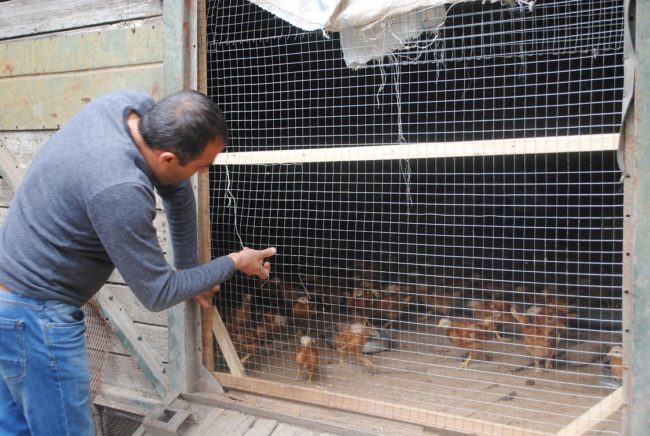
According to Eteri Musayelyan, communications officer for the Red Cross in Nagorno-Karabakh, in 2012, their mission ‘launched a programme to help those affected by explosive remnants of the war’.
‘Employees of the economic assistance department are studying the possibilities of developing small business projects with each family. After that, each family receives money for the project. Since 2012, more than 200 families have implemented projects such as opening garages, keeping livestock, opening shops, beekeeping, etc. Also, we partially repair houses and, in some cases, give monetary aid for medical needs related to cases of mine explosions’, Musayelyan said.
This monetary assistance is up to ֏450,000 ($900). According to Musayelyan, the mission helps families that are particularly in need of support. ‘We try to provide them with what they particularly need and what will help them to have an income’, Musayelyan said.
Whether the Red Cross can change Jonik’s life is something he doesn’t yet know, but he hopes he will be able to make his dream come true and finally buy a flat.
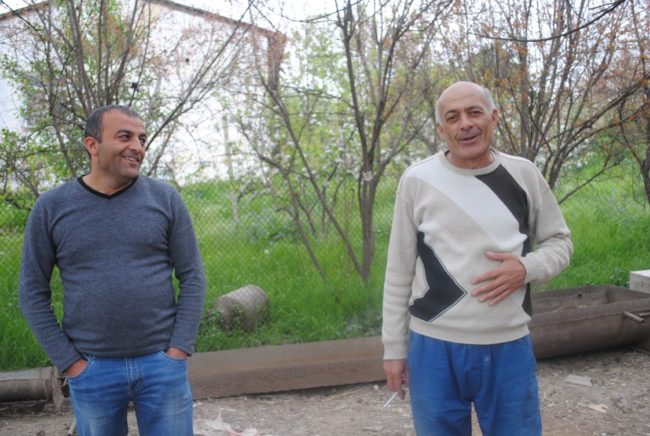
All place names and terminology used in this article are the words of the author alone, and may not necessarily reflect the views of OC Media’s editorial board.


